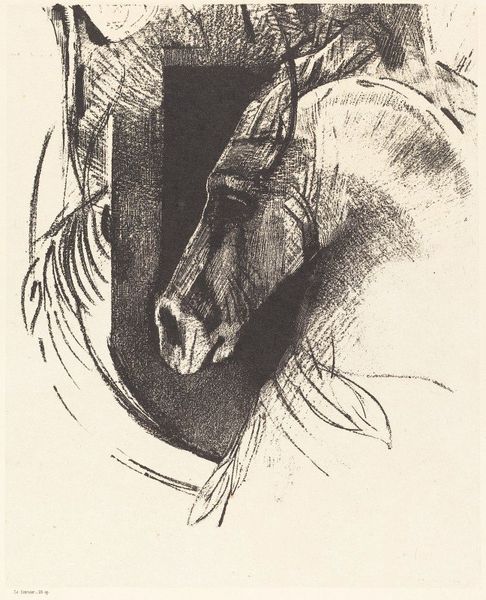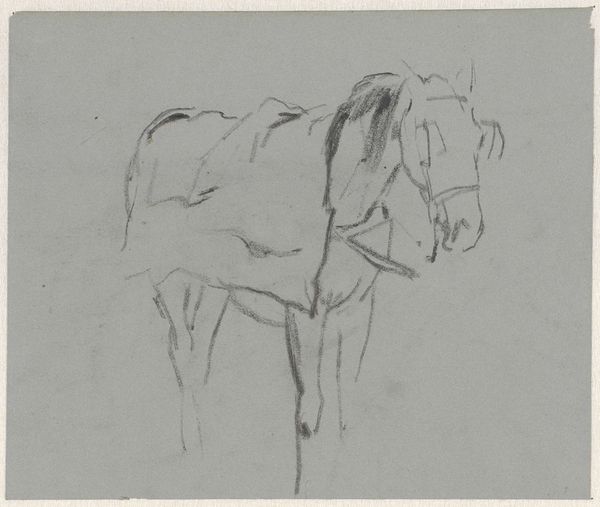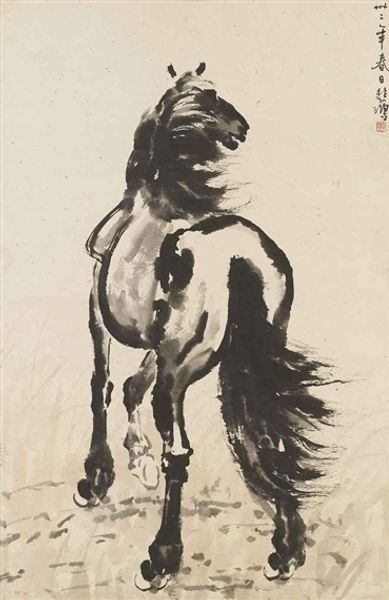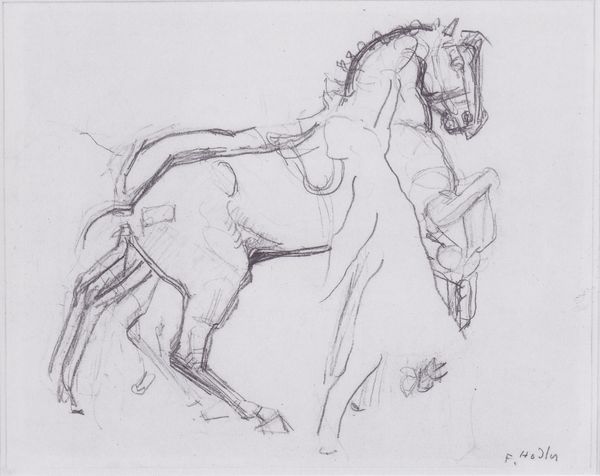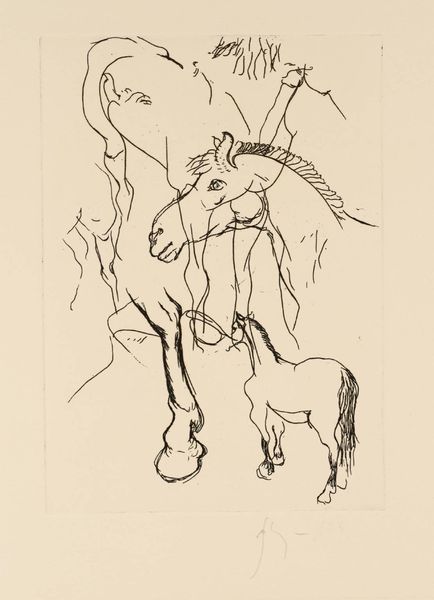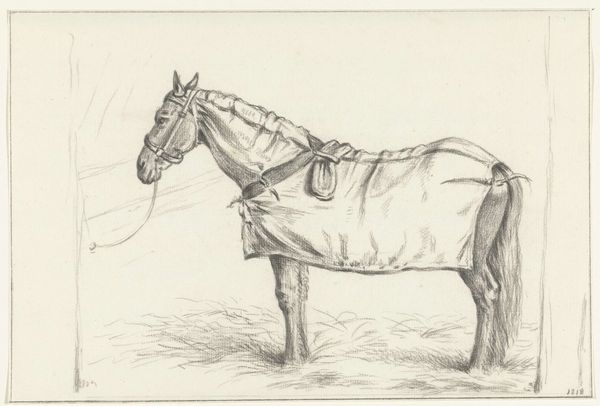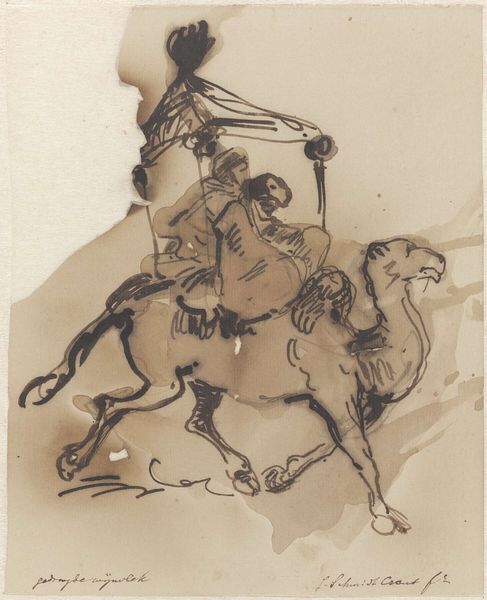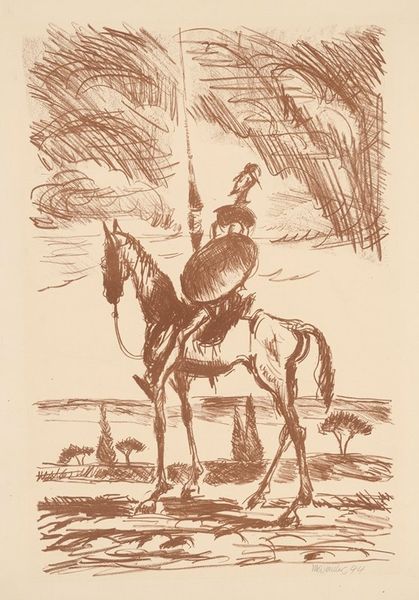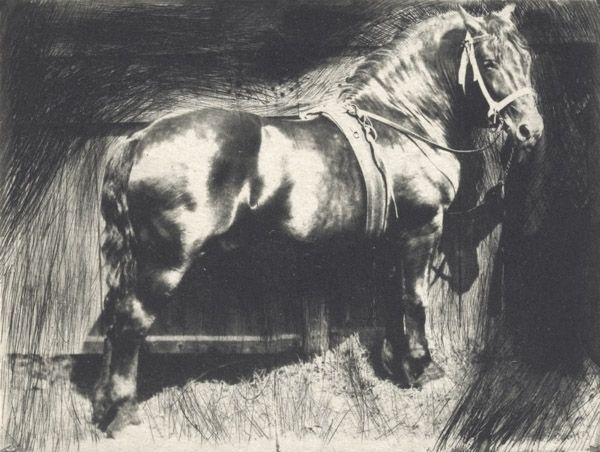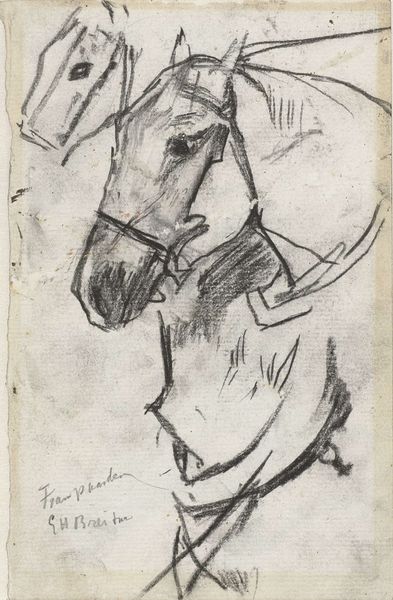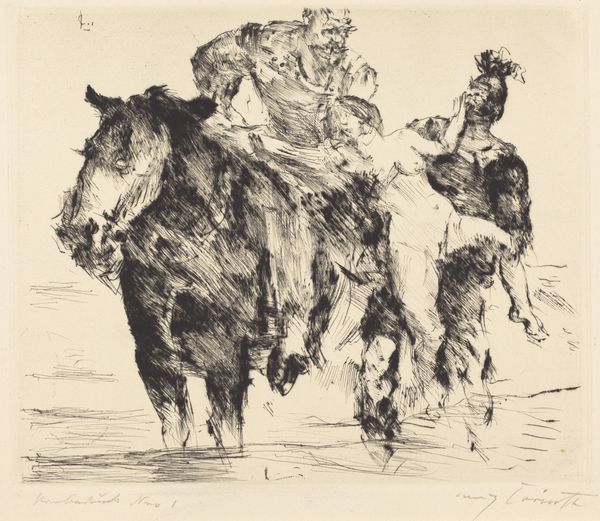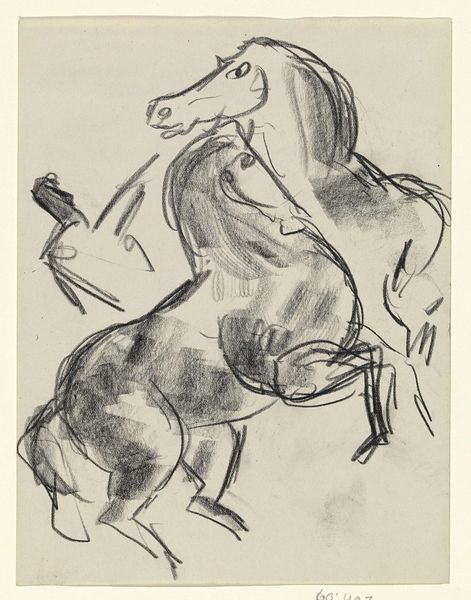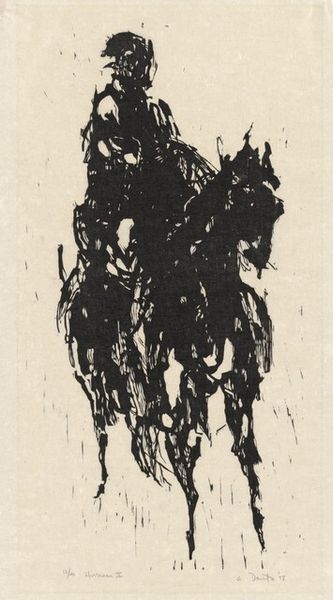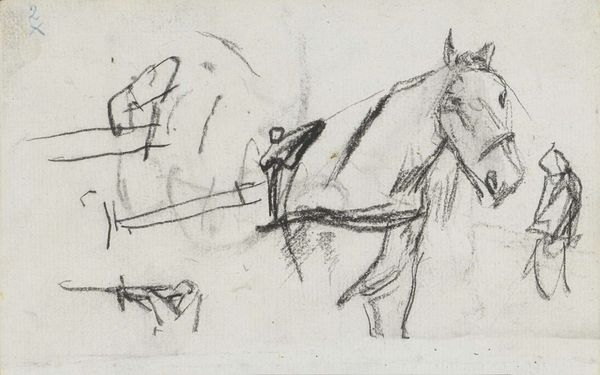
Copyright: Public Domain: Artvee
Editor: Here we have Lovis Corinth's 1916 pen and ink sketch, "Riding-Horse." I'm struck by the contrast between the horse's stillness and the frenetic energy of the lines around it. What's your take on this piece? Curator: I see a convergence of factors reflecting the tumultuous context of its creation. Consider 1916 – the height of World War I. Corinth, though a German artist, would have been acutely aware of the devastating impact of mechanized warfare, particularly on the landscape and the animals within it. Does this drawing then, become an elegy of sorts? A representation of lost power or freedom in the face of overwhelming technological force? Editor: An elegy... that's interesting. The horse seems so ordinary, almost worn. Are you suggesting this ordinariness is a reflection of its time? Curator: Precisely. Horses, once symbols of power and status, were now tragically utilized in the war effort, their traditional roles subverted by tanks and machinery. Look at the seemingly incomplete rendering; it feels intentionally raw, doesn't it? The visible, almost frantic, strokes of ink undermine traditional notions of equestrian heroism and expose a sense of vulnerability. How does the impressionistic style contribute to this feeling? Editor: The looseness definitely adds to that sense of vulnerability you describe. The horse isn't idealized; it’s just… there. Curator: Yes! And within that "thereness" lies its power. Corinth avoids romanticism, presenting the animal in a way that speaks to its contemporary context. This approach makes us consider the ethical implications of our relationship with animals, both historically and in the present day. How do we, as humans, exert our power over them? Editor: I never thought about it that way. Seeing the horse in this context gives me a much deeper appreciation for the drawing's layers of meaning. Curator: It reminds us that even seemingly simple sketches can be powerful vehicles for understanding complex social and historical realities. And in this way, art continues to be profoundly relevant to our current world.
Comments
No comments
Be the first to comment and join the conversation on the ultimate creative platform.
